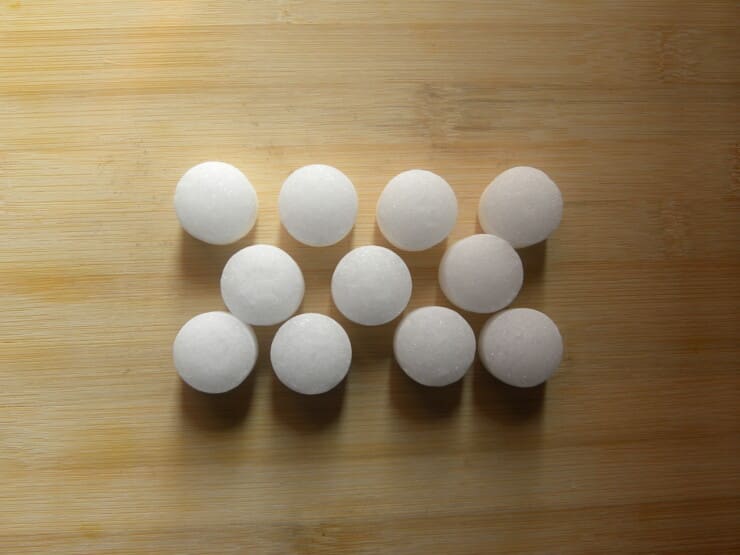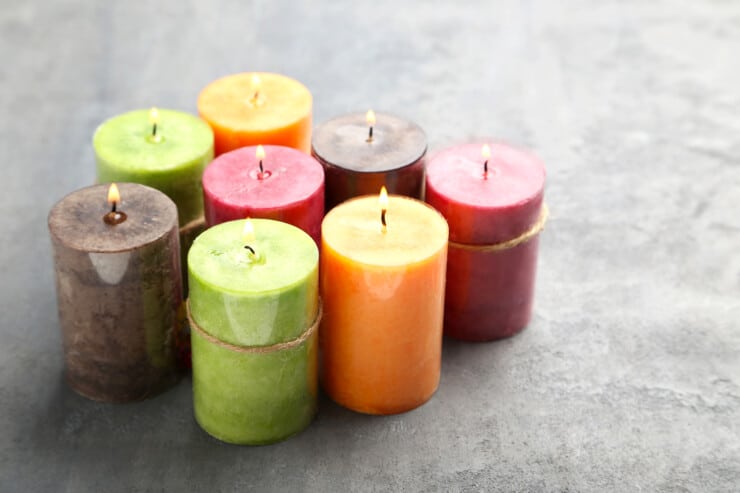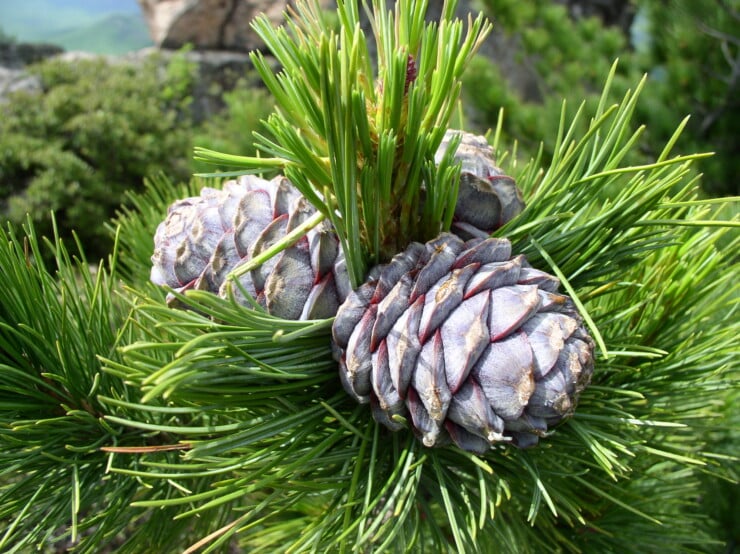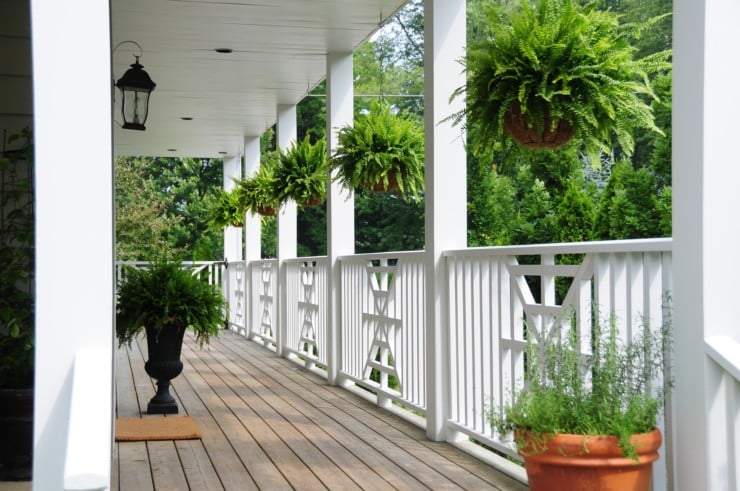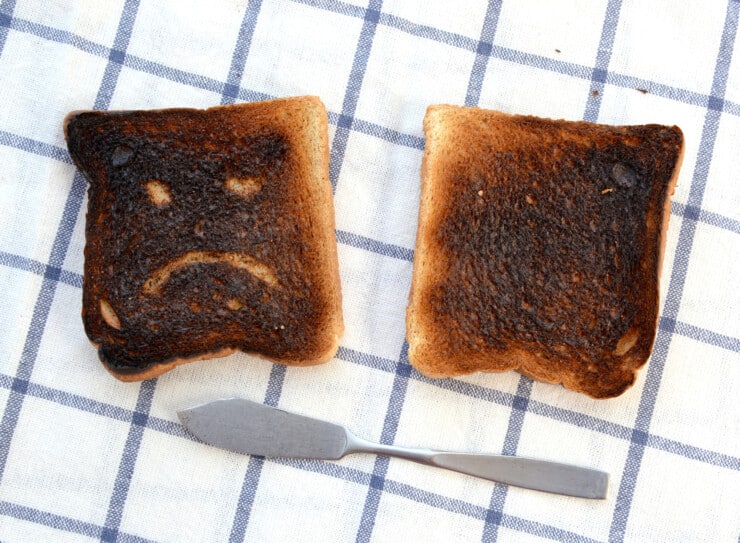Why Is There A Strange Eucalyptus Smell In My House?
Have you ever entered your home and been welcomed by an odd, almost medicinal scent that appeared to have spread throughout every nook and cranny of your living area?
You’re not alone.
Many people have experienced this mysterious scent wafting through their homes, leaving them puzzled and seeking answers.
It’s an aroma often described as reminiscent of eucalyptus or menthol, but why would such a distinct odor suddenly appear in your house?
Don’t worry; we’ve got you covered!
In this article, we’ll dive into the possible causes behind that strange eucalyptus smell lingering in your abode.
We’ll explore various factors that could be contributing to its presence and provide expert advice on how to identify and eliminate it for good.
By the end of this read, you’ll finally be able to breathe easy knowing what’s causing that pesky smell and reclaim full mastery over your home environment.
So let’s get started!
Investigating Common Culprits
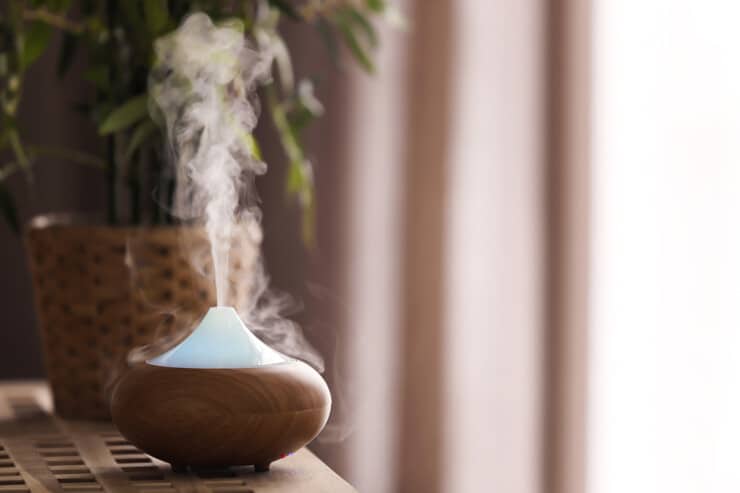
If you’ve noticed a strange eucalyptus smell in your home, it’s natural to feel concerned and curious about its origin.
Getting to the bottom of unusual odors can be an adventure that involves investigating some common scent sources.
Not only will this quest help identify the cause of the mysterious aroma, but it may also provide valuable information on how to prevent such olfactory surprises from reoccurring.
The first step towards mastery over these elusive scents is understanding what they are and where they might come from.
Eucalyptus oil has a strong, distinct fragrance often found in cleaning products or air fresheners.
It could be possible that someone in your household recently used one of these items, causing the lingering scent.
Another possibility is that there’s a eucalyptus tree nearby or even planted in your yard – those leaves have a powerful odor when crushed!
Keep an open mind as you investigate every nook and cranny for potential scent sources, remembering that knowledge is power when it comes to controlling and mastering any situation.
As you continue your hunt for answers, don’t forget to look beyond the obvious culprits like cleaning supplies or landscaping features.
Perhaps there’s an essential oil diffuser hidden away somewhere releasing the pleasant yet puzzling eucalyptus aroma?
Or maybe you’ve inadvertently brought something inside with traces of eucalyptus oil on it – shoes, clothing, or other objects can carry surprising amounts of stubborn scents into our homes without us realizing it!
As you unravel the mystery behind the unexpected perfume permeating your living space, remember that true mastery comes not just from finding solutions but also embracing life’s little enigmas along the way.
Identifying Hidden Mold And Mildew
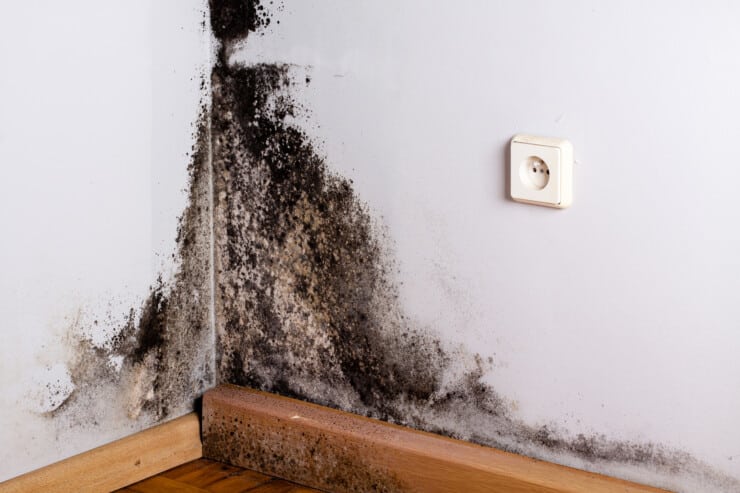
“I’m trying to figure out why there’s a strange eucalyptus smell in my house; I think it might be from hidden mold and mildew.”
To identify the source of the mold, I need to look at where moisture collects in the house.
Once I’ve identified the source, I’ll need to detect whether mold growth has occurred.
If mold is present, I’ll need to act quickly to remedy the infestation.
I’ll need to use special cleaning solutions to remove the mold, and then make sure to take steps to prevent future growth.
Hopefully, this will help eliminate the strange eucalyptus smell in my house.
Identifying Mold Sources
Imagine you’re walking through your home, when suddenly you catch a whiff of that strange eucalyptus smell.
You’ve searched high and low to find the source but can’t seem to locate it.
That’s because mold and mildew may be hiding in places you wouldn’t expect – like behind walls or under floorboards.
To get rid of this unwanted odor and reduce potential health implications, it’s time for some detective work!
Start by checking areas prone to dampness, such as bathrooms, basements, kitchens, laundry rooms, and even closets with insufficient ventilation.
Make sure you inspect around windowsills, pipes, appliances, and other spots where moisture could accumulate.
Armed with this knowledge on mold prevention methods will help safeguard your family’s well-being from harmful spores lurking in hidden corners.
As you uncover these concealed culprits causing the eucalyptus scent in your home, remember that addressing any underlying issues contributing to excess moisture is key.
Fix leaky faucets or roofs promptly and maintain proper humidity levels indoors using dehumidifiers or air conditioners if necessary.
After all, maintaining a healthy living environment should always take precedence over simply masking odors – so don’t let those sneaky mold sources outsmart you!
Detecting Mold Growth
Now that you’re geared up with mold prevention tips and tricks, it’s time to dive into the nitty-gritty of detecting mold growth in your home.
Remember, the health implications of hidden mold can be serious, so don’t take this task lightly!
Start by using your senses – keep an eye out for visual signs like discoloration on walls or ceilings, as well as any suspicious odors (hint: think eucalyptus).
Don’t forget to look behind furniture, under carpets, and inside cupboards or cabinets where moisture might accumulate.
If you suspect there’s more than meets the eye (or nose), consider investing in a mold test kit available at most hardware stores.
These kits are designed to help homeowners identify various types of molds lurking within their homes.
Armed with this knowledge, you’ll gain greater insight into which areas may require professional remediation or simple DIY fixes.
Incorporating these detection methods alongside regular maintenance checks will give you the upper hand when it comes to keeping your living environment healthy and free from unwanted spores.
And remember – staying vigilant is key when dealing with sneaky mold sources!
Remedying Mold Infestations
So, you’ve got your mold prevention tips on lock and have been diligently detecting potential problem areas in your home.
But what happens when you actually find that sneaky culprit lurking behind your walls or under the carpet? Fear not!
It’s time to roll up your sleeves and tackle those mold infestations head-on.
First things first, assess the severity of the situation – is it a small patch that can be handled with natural cleaning solutions, or is it an extensive growth requiring professional help?
For minor issues, white vinegar, baking soda, and essential oils like tea tree oil are excellent go-to options for DIY remediation.
If you’re dealing with more stubborn invasions or larger affected areas, though, don’t hesitate to call in the pros.
They’ll have the expertise and equipment necessary to ensure complete removal while minimizing any health risks associated with exposure.
In either case, always remember that persistence pays off when combatting mold and mildew.
With regular checks and proactive measures in place, you’ll be well-equipped to nip any unwanted fungal guests in the bud before they become serious problems.
Keep at it; maintaining a healthy living environment is worth every ounce of effort!
Checking For Pest Infestations
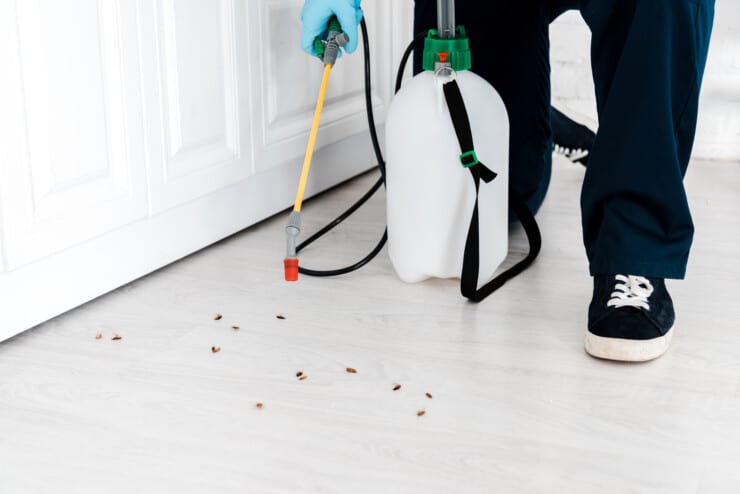
Now that you’ve noticed a strange eucalyptus smell in your house, it’s essential to consider the possibility of a pest infestation.
Pests can cause considerable damage not only to your home but also to your wallet if left unchecked.
By being proactive and vigilant about pest prevention, you will be able to address any issues promptly and maintain a healthy living environment.
To get started, here are three crucial steps you should take when checking for signs of an infestation:
- Inspect hidden areas: Pests often hide in dark corners or behind furniture where they’re less likely to be disturbed. Carefully examine these spaces for droppings, nests, or dead insects.
- Look out for physical damage: Some pests can gnaw through wires, woodwork, or even walls causing significant harm over time. Keep an eye on suspicious markings such as gnaw marks or holes in your home structure.
- Pay attention to unusual sounds: Scratching noises coming from within the walls or ceilings could indicate rodents’ presence or other unwanted guests.
As you follow these guidelines and keep up with regular maintenance tasks around your home, remember that mastering pest prevention is an ongoing process rather than a one-time event.
Continue researching and staying informed about potential threats specific to your region while keeping track of new trends in pest control methods.
This continuous learning approach will empower you with knowledge so that when faced with infestation signs, you’ll know how best to act swiftly and effectively.
So let this peculiar eucalyptus odor serve as a wake-up call prompting immediate action towards securing your home against unwelcome intruders.
And rest assured knowing that by taking charge now, you’re developing invaluable skills which contribute directly towards safeguarding both your property investments and personal wellbeing long into the future.
Examining Household Products And Materials
As Sherlock Holmes would say, ‘When you have eliminated the impossible, whatever remains, however improbable, must be the truth.’
Following this logic, if you’ve ruled out an actual eucalyptus tree or a koala hiding in your home as the source of that strange smell, it’s time to examine other possibilities.
Household products and materials can sometimes emit peculiar scents even when we least expect them to.
One possible explanation for the mysterious eucalyptus scent is the presence of household fragrances such as candles, air fresheners, or essential oils with eucalyptus components.
That distinct aroma can linger on surfaces long after their use has ceased.
Additionally, some cleaning agents may contain natural ingredients including eucalyptus oil which could leave a trace of its fragrance behind.
As our sense of smell plays an integral role in how we experience our surroundings, examining these potential scent triggers will help solve this olfactory enigma.
Digging deeper into your investigation may reveal unexpected sources of the eucalyptus odor within your house.
For instance, certain construction materials like wood or paint might release volatile organic compounds (VOCs) over time that mimic familiar smells – even something as specific as eucalyptus.
Be sure not to overlook any new items that recently entered your living space; they too could bring along surprising scents.
Unraveling this aromatic mystery requires both attention to detail and persistence but remember – much like mastering any skill – practice makes perfect!
Ensuring Proper Ventilation And Air Quality
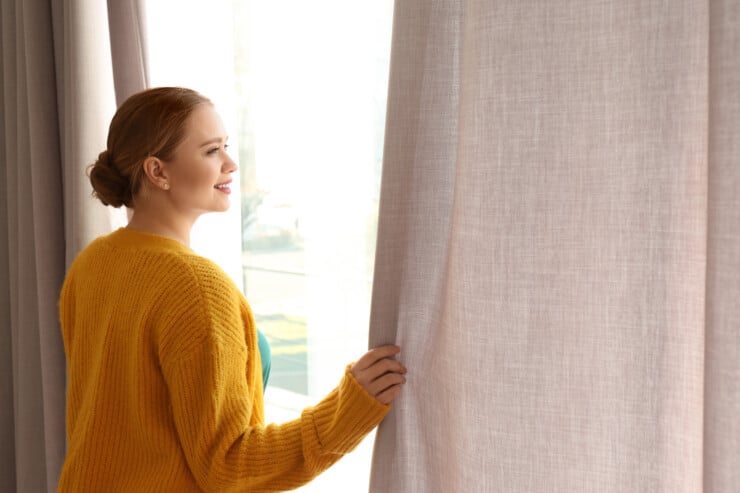
It’s essential to ensure proper ventilation and air quality in your home, especially when you encounter a strange smell like eucalyptus.
Good airflow not only helps eliminate odors but also brings several health benefits.
It reduces the risk of respiratory issues, allergies, and asthma triggers while keeping your living space fresh and comfortable.
Some practical tips for improving ventilation and air quality include:
- Regularly opening windows and doors to allow fresh air inside
- Using exhaust fans in kitchens and bathrooms
- Installing an energy-efficient ventilator system
Air purifiers are another excellent solution for maintaining good indoor air quality.
These devices filter out pollutants such as dust, pollen, pet dander, smoke particles, and even some bacteria or viruses present in the environment.
By doing so, they contribute significantly to creating a cleaner atmosphere within your home.
Moreover, certain models come with activated carbon filters that specifically tackle unwanted smells by absorbing odor-causing molecules.
Investing time and effort into ensuring high-quality indoor air is vital for your well-being.
A balanced combination of natural ventilation methods (like opening windows), mechanical solutions (such as fans or ventilators), and supplementary systems (like air purifiers) can make a significant impact on the overall comfort level in your house.
So why wait? Start taking steps towards better breathing spaces today – after all, it’s never too late to enjoy the numerous ventilation benefits waiting just around the corner!
Frequently Asked Questions
Can Certain Types Of Houseplants Cause A Eucalyptus-Like Smell In My Home?
Yes, certain houseplants can indeed introduce a eucalyptus-like smell into your home.
Some plants, known as eucalyptus alternatives, emit indoor fragrances that closely mimic the distinct aroma of eucalyptus.
These aromatic wonders not only freshen up your living space but also offer you an opportunity to create a personalized ambiance while nurturing your green thumb.
Embrace this sensory delight and elevate your mastery in cultivating a home environment brimming with natural scents by exploring various eucalyptus-alternative plants and harmonizing their captivating fragrances within your sanctuary.
Are There Any Health Risks Associated With A Eucalyptus Smell In My House?
You might be wondering if there are any health risks associated with a eucalyptus smell in your house, and the answer is: it depends.
For most people, the scent of eucalyptus can be invigorating and refreshing; however, some individuals may experience eucalyptus allergies or have a heightened smell sensitivity that could lead to discomfort or irritation.
It’s essential to pay attention to how you and others in your household react to this aroma because understanding its potential impact on your well-being will empower you to make informed decisions about addressing the mysterious source of the scent.
Can Weather Conditions Or Seasonal Changes Contribute To The Eucalyptus Smell In My Home?
Absolutely, weather conditions and seasonal changes can contribute to the eucalyptus smell in your home.
Weather impact such as increased humidity or dampness could release various scents from materials like wood, paint, or fabrics that might resemble a eucalyptus aroma.
Additionally, seasonal triggers like blooming flowers or trees outside your house may produce similar smells which can infiltrate indoors through open windows or ventilation systems.
Understanding these factors helps you stay informed about the potential sources of this intriguing scent while also empowering you to take necessary steps towards maintaining a comfortable and pleasant indoor environment throughout the year.
How Can I Effectively Eliminate The Eucalyptus Smell In My House Once I’ve Identified The Source?
To effectively eliminate the eucalyptus smell in your home, first ensure you’ve pinpointed the source of the aroma.
Once identified, consider using natural air purifiers like activated charcoal bags or HEPA filters to absorb and filter out unwanted odors.
Regularly ventilate your space by opening windows and doors for fresh air circulation.
Keep in mind that some people experience eucalyptus allergies; if this is a concern, eliminating the scent becomes even more crucial for maintaining a healthy environment.
On the other hand, if you find aromatherapy benefits within the eucalyptus fragrance, opt for essential oil diffusers or scented candles as controlled alternatives once you’ve successfully neutralized any lingering smells.
Achieving mastery over your indoor atmosphere will leave you with a comfortable and welcoming living space tailored to your preferences.
Are There Any Professional Services I Can Consult To Help Me Determine The Cause Of The Eucalyptus Smell In My Home?
Absolutely!
To tackle the mystery of eucalyptus detection and uncover the smell origins, you can consult professional services such as indoor air quality experts, environmental consultants, or specialized odor removal companies.
These professionals have extensive experience in identifying and addressing various types of odors within homes, so they’ll be well-equipped to help you unravel this aromatic enigma.
By partnering with these experts, not only will you gain insight into what’s causing that peculiar scent, but you’ll also acquire valuable knowledge about maintaining a fresh-smelling home environment for your ultimate mastery in domestic bliss.
Final Thoughts
It’s essential to identify the source of the eucalyptus smell in your home and address any potential health risks associated with it.
Remember that certain houseplants can emit a similar scent, and weather conditions may also play a role in its presence.
One interesting statistic is that nearly 75% of US households have at least one indoor plant, which could contribute to unexpected smells like eucalyptus.
So if you’re experiencing this strange odor, know that you’re not alone – reach out to professional services for assistance if needed.


